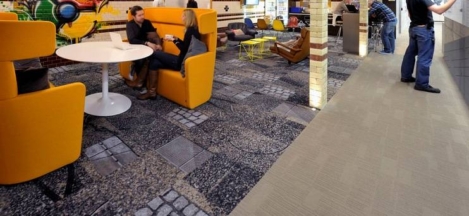March 23, 2016
Younger generation of staff want workplaces to utilise ‘live’ technologies 0
 The next generation of employees believe that if employers they want to attract and retain the best talent, they need to change their approach to new ‘live’ technologies which enable people to communicate in real time. According to new global research (albeit from a video comms company) despite 85 percent of employees using video as part of their everyday lives, only 28 percent say their employers are proactively encouraging them to use video at work to communicate. 72 percent feel that live video has the power to transform the way they communicate at work and 69 percent believe that increased use of video conversations would help employee retention at all levels within the organisation. The research, conducted among 4,000 employees across the UK, Germany, France and the US, also found that only one in seven (14 percent) employers is good at providing communications tools at work which mirror those employees use at home.
The next generation of employees believe that if employers they want to attract and retain the best talent, they need to change their approach to new ‘live’ technologies which enable people to communicate in real time. According to new global research (albeit from a video comms company) despite 85 percent of employees using video as part of their everyday lives, only 28 percent say their employers are proactively encouraging them to use video at work to communicate. 72 percent feel that live video has the power to transform the way they communicate at work and 69 percent believe that increased use of video conversations would help employee retention at all levels within the organisation. The research, conducted among 4,000 employees across the UK, Germany, France and the US, also found that only one in seven (14 percent) employers is good at providing communications tools at work which mirror those employees use at home.


































March 23, 2016
Is discrimination of women with children the root cause of gender pay gap? 0
by Sara Bean • Comment, Flexible working, Legal news, News, Workplace
(more…)